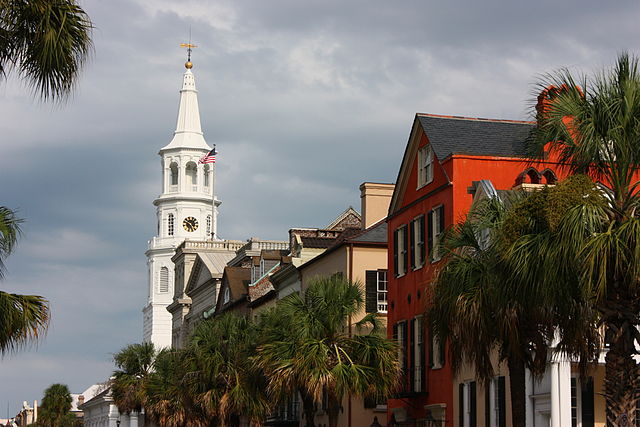By Michael Burger
On Monday, a panel of the United States Court of Appeals for the Ninth Circuit will hear oral arguments in Juliana v. United States. The argument will be live streamed here, at 1 pm EST/10 am PST. Below, I flag four key issues that may figure (more or less) prominently in the judges’ questioning.
As everyone who reads this blog by now knows, Juliana is a climate change case brought by twenty-one individuals, all 19 or younger at the time of filing, and a plaintiff named Future Generations, as represented by scientist James Hansen, against the federal government. The plaintiffs allege that the government’s failure to address climate change in a way consistent with climate science is a violation of their constitutional rights and the public trust doctrine. On November 10, 2016, two days after Donald Trump was elected president, a federal district court judge in Oregon issued an order denying the government’s motion to dismiss the case. In her opinion, the judge found, among other things, that the youth plaintiffs have standing to sue, that the U.S. Constitution supplies a substantive due process right to a “stable climate system,” and that the public trust doctrine does apply to the federal government and may be enforced in court. The federal government then petitioned the Ninth Circuit for a writ of mandamus terminating the case, and moved to stay the district court proceeding, including the discovery process. This is an unusual move, and a writ is rarely granted. The Ninth Circuit granted the stay. Monday’s argument concerns whether the appeals court should decide the interlocutory appeal, or else send the case back to the district court.
The Ninth Circuit will be considering a number of factors, including whether the district court’s decision was clear error and whether the government will be damaged or prejudiced if the writ does not issue. The government has argued that all of the district court’s substantive decisions are clearly erroneous: that is, that plaintiffs do not have standing, that there is no substantive due process right at stake, and that there is no public trust obligation that applies here. The government has also argued that moving forward toward trial would significantly harm the government, both because of the burdens of discovery and because doing so would violate the separation of powers. Having followed this case closely, I’m particularly curious to see whether or how the court addresses these four issues:
- Does Bellon control? In Washington Environmental Council v. Bellon (9th 2013), the Ninth Circuit held that two non-profits did not have standing to challenge Washington State’s failure to regulate GHG emissions from five oil refineries. The panel determined that the plaintiffs had not shown that the refineries’ emissions made a “meaningful contribution to global GHG levels” and so could not establish a sufficient causal connection between the emissions and the alleged harms from climate change, or the likelihood that any harms would be redressed by ordering the relief sought. A petition for rehearing en banc was denied, but not unanimously. Three judges dissented, warning that the panel’s decision was “overbroad,” employed “unduly restrictive language,” and erected improper barriers to future climate change litigation. Will this panel seek to clarify what is a “meaningful contribution,” and if so whether the government’s systemic failure to regulate can be the cause of one? Will it seek to clarify the contours of redressability in the context of the Paris Agreement? Will it matter that plaintiffs are seeking not just regulation of GHGs moving forward but negative emissions, as well?
- Does Obergefell matter? As the government argues, and as the district court itself acknowledged, the determination that there is substantive due process right to a stable climate system is simply unprecedented. What’s more, federal courts have when presented with the question consistently rejected the notion that the U.S. Constitution provides a right to a clean environment, or one free of pollution. But we have in recent memory seen the U.S. Supreme Court recognize a previously unrecognized “fundamental right” to same sex marriage, in Obergefell v. Hodges (2015). Have we come far enough on climate change to activate the legal imagination of the panel’s judges? Do they agree with the district court, and with what climate science tell us, that a stable climate system is an essential piece of ensuring protection of liberty? Or not?
- Does Alec L. control? The existence of a federal public trust doctrine is a core question in this case. I will spare you the extensive back-and-forth, but the main challenge for the plaintiffs here is that the U.S. Supreme Court wrote, in PPL Montana, LLC. V. Montana (2013), that “the public trust doctrine remains a matter of state law” and that “the contours of that public trust do not depend upon the Constitution.” In Alec L. v. McCarthy (D.C. Cir. 2014), another suit brought by Our Children’s Trust alleging the federal government violated the public trust doctrine by failing to regulate GHG emissions, the D.C. Circuit Court of Appeals cited to PPL Montana in affirming that federal courts lacked subject matter jurisdiction. If the Ninth Circuit finds differently we have a clear circuit split and will be on our way to the Supreme Court. Will the panel treat this as an open-and-shut matter? Or will they dive into the nuances in the district court’s opinion and plaintiffs’ arguments?
- Is discovery so terrible? I will confess that I am hoping the panel slaps the Department of Justice on the wrist for this one. The argument the government has made is that preserving old documents related to climate change, and working with plaintiffs’ lawyers and the district court to settle on an appropriate scope for discovery, is just too much to handle. Really? If the burdens of discovery were really a reason for appellate courts to hear interlocutory appeals – rather than a means through which lawyers can rack up fees – it would be far more common for them to do so. But they call it “going through the motions” for a reason.
There are of course numerous other legal pieces to the puzzle of this case, and the judges on the Ninth Circuit panel may well be focused on ones I do not discuss here. (According to the Ninth Circuit website, each side has been allocated 20 minutes, so it’s not a lot of time.) But these are at the core of the controversy, and it may be that we hear some clues from the bench as to how judges are leaning on Monday.




